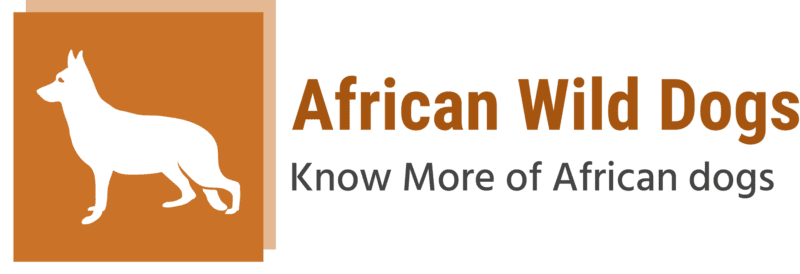The African wild dog is a very sociable creature, often found in packs of up to 40 individuals. A male and female lead the pack, along with their offspring and sometimes other adult relatives. Together, the dogs use their keen noses and hunting skills to track down their prey. On average, a pack can kill between 15 and 20 large ungulates per week.
Throughout sub-Saharan Africa, you can spot the African wild dog. African hunting dog, Cape hunting dog, painted dog, and red dog are just a few of the names for this species. With a population of only 6,600, the Lycaon fawn is the most endangered canid on the planet.
According to the IUCN Red List, African wild dogs are in a dire state of extinction. Loss of habitat, fragmentation of remaining habitat, disease, and human conflict are the primary dangers to this species.
The African wild dog: the facts
The African Wild Dog is a stunningly handsome but critically endangered canine native to Africa. Information about this incredible creature is provided below.
- The African Wild Dog, or Painted Dog, is the largest living canid and goes by many other names as well.
African wild dogs are highly social creatures that travel and forage together in packs of six to twenty. - The African wild dog has a short, coarse coat with a distinctive mane on the back of its neck. Large areas of the coat are solid black, white, yellow, or tan.
- The African wild dog is a skilled hunter that can bring down animals much larger than itself.
- Unfortunately, the African Wild Dog is in peril due to human activities like habitat destruction and hunting.
African wild dogs in their natural habitat
The African wild dog is endemic to Africa and can be found there in a variety of ecosystems. They have been spotted in a wide variety of habitats, from grasslands and forests to savannas and even deserts. The African wild dog is one of the most adaptable species on the planet.
Feedback on Owning an African Wild Dog
An incredible pet is the African wild dog. They have a wonderful disposition and are very affectionate. About two years ago, I got mine, and she has been wonderful. She’s always smiling, and she enjoys playing fetch and going for walks. An African wild dog would make an excellent pet.
Discussion of the Benefits and Risks of Owning an African Wild Dog
The African wild dog is both stunning and one-of-a-kind. The largest of the canid (dog, wolf, and jackal) family, to which they belong. In addition, they are the only canids that lack a dewclaw on either of their front paws. Wild dogs of the African subcontinent are found in the continent’s forests, savannas, and grasslands. They are highly social creatures, typically found in groups of six to twenty-seven. A dominant male and female are the only reproducing members of a pack. Whenever possible, an African wild dog will avoid interacting with a human. When threatened or defending territory or young, however, they can become aggressive.
Due to their timid nature and potential aggression, African Wild Dogs are rarely kept as pets. Still, some households choose to keep one as a pet. The decision to keep an African wild dog as a pet should be carefully considered.
African Wild Dogs are devoted members of their packs and families.
They’re useful as guard dogs because they’ll bark at strangers.
Due to their low grooming and exercise needs, they make for low-maintenance pets.
They can live up to 12 years in captivity, which is much longer than the average for canine species.
When threatened or defending their territory, African Wild Dogs can become aggressive.
Maintaining a Healthy African Wild Dog
If you’re writing a blog post titled “A Guide to the African Wild Dog: User Reviews” and need material for a section titled “How to Care for an African Wild Dog,” here are some ideas.
Because of its high activity level, an African wild dog requires a spacious enclosure in which to live comfortably. The enclosure’s perimeter fence should be at least 6 feet high and buried so the dog can’t dig out. Toys, bones, and chew toys are examples of enrichment items that should be provided, along with a shelter large enough for the dog to stand up and turn around in.
Because of their high activity levels, African wild dogs require a diet rich in protein and fat. An African wild dog’s diet should include raw meat, bones, organs, and vegetables. They should also have constant access to clean water.
Typical Health Problems of African Wild Dogs
African wild dogs are susceptible to a variety of health problems. Parasites, contagious diseases, and accidents are all examples.
African wild dogs frequently contract intestinal parasites, which can lead to gastrointestinal distress, loss of body mass, and anaemia. Because these parasites can be transmitted to humans, it is crucial to exercise caution around infected animals.
Rabies, canine distemper, and parvovirus are just a few of the infectious diseases that can affect African wild dogs. Your dog should be vaccinated against these potentially fatal diseases and kept away from sick animals.
African wild dogs are prone to injuries like broken bones, sprains, and strains because of their active lifestyle. In the event that your dog sustains an injury, prompt veterinary attention is essential.
Conclusion
The history of the African wild dog is as fascinating as the animal itself. Hopefully, after reading this, you’ll have a better understanding of the African wild dog and its fascinating habits and adaptations. According to testimonials, these pets are intelligent, loyal, and devoted to their owners, which explains their widespread popularity. The African wild dog could be the perfect pet for you if you’re looking for a companion or a subject of study if you’re interested in learning about one of Africa’s most formidable predators.

